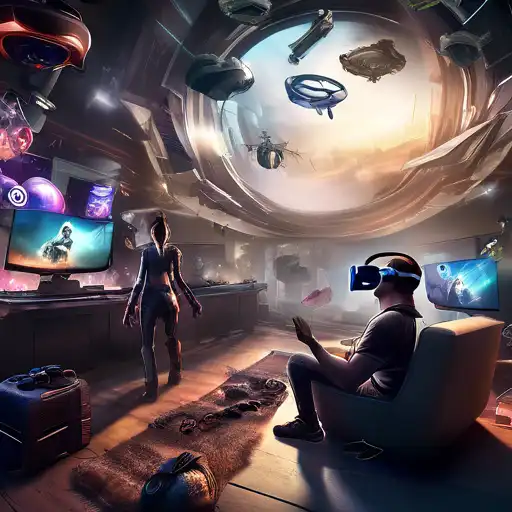The Revolutionary Impact of Virtual Reality on the Gaming Sector
Virtual Reality (VR) has emerged as a groundbreaking technology that is reshaping the gaming industry in unprecedented ways. By offering immersive experiences that were once the stuff of science fiction, VR is setting new standards for what gamers expect from their entertainment. This article explores the transformative effects of VR on gaming, from enhanced gameplay to new opportunities for developers and players alike.
Immersive Gameplay Like Never Before
One of the most significant contributions of VR to the gaming industry is the level of immersion it offers. Players are no longer just controlling a character on a screen; they are stepping into the game world itself. This immersion is achieved through sophisticated VR headsets and motion-tracking technology, which together create a sense of presence within the virtual environment. Games like Half-Life: Alyx have demonstrated the potential of VR to deliver deeply engaging and interactive experiences.
New Opportunities for Game Developers
VR technology has opened up a plethora of opportunities for game developers. With the advent of VR, developers are now exploring new genres and gameplay mechanics that were previously impossible. This has led to the creation of innovative games that leverage VR's unique capabilities, such as spatial awareness and hand tracking. Furthermore, the VR gaming market is growing rapidly, offering developers a lucrative new avenue for their creations.
Enhanced Social Interactions
Another area where VR is making waves is in social gaming. Platforms like VRChat allow players to interact with each other in virtual spaces, creating a sense of community and shared experience that traditional gaming cannot match. These social VR experiences are becoming increasingly popular, highlighting the potential for VR to bring people together in new and meaningful ways.
The Future of VR in Gaming
As VR technology continues to evolve, its impact on the gaming industry is expected to grow even further. Advances in hardware, such as lighter and more comfortable headsets, and software, including more realistic graphics and AI, will continue to push the boundaries of what's possible in VR gaming. The future may also see the integration of VR with other technologies, such as augmented reality (AR), to create even more immersive and interactive experiences.
In conclusion, VR is not just changing the gaming industry; it's revolutionizing it. From immersive gameplay and new developer opportunities to enhanced social interactions, VR is setting the stage for the future of entertainment. As technology advances, the possibilities for VR in gaming are limitless, promising an exciting future for gamers and developers alike.
